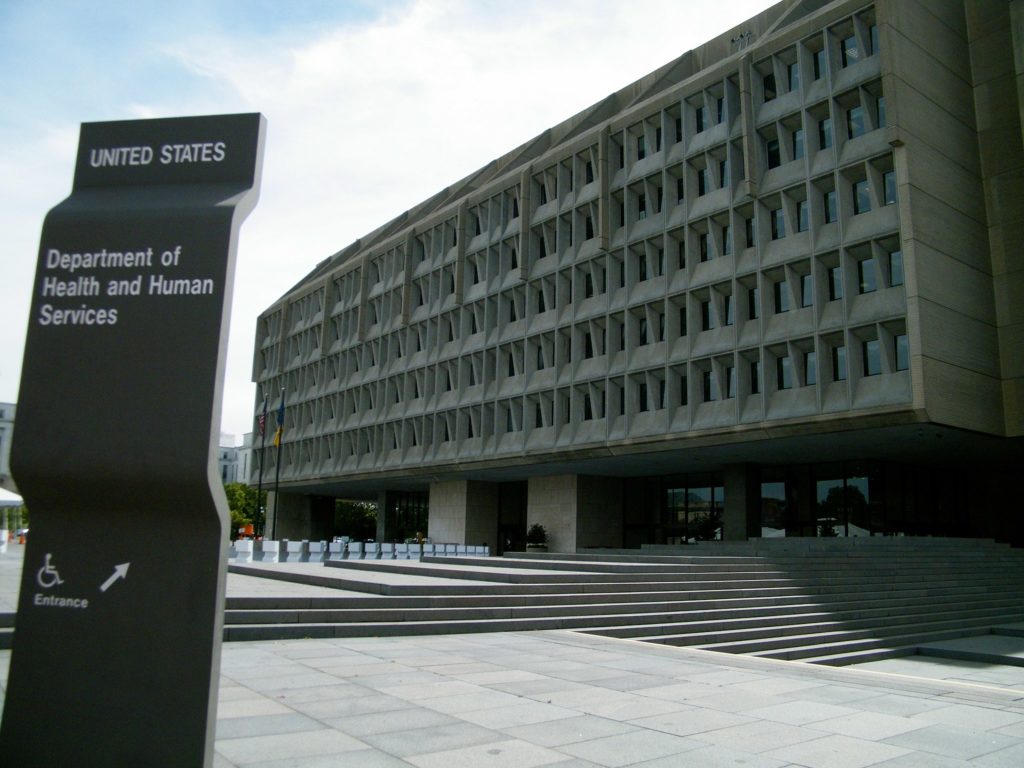
Published November 9, 2021
On October 25, 2021, a group of twelve states led by Ohio sued the U.S. Department of Health and Human Services (HHS) and Secretary Xavier Becerra over new Title X regulations that would take family-planning money away from the states and give it to America’s largest abortion provider, Planned Parenthood.
Title X is a federal program that funds state and private health-care organizations offering voluntary family-planning services — including contraception — natural family-planning methods, infertility services, and services for adolescents. Section 1008 of Title X specifically prohibits funds from “be[ing] used in programs where abortion is a method of family planning.”
Title X regulations under section 1008 have changed several times over the years, perhaps most famously in 1988, when President Ronald Reagan’s HHS required physical and financial separation between Title X projects and abortion services and prohibited abortion counseling and referrals. Well-funded abortion proponents challenged the regulations in court but lost when the Supreme Court vindicated the regulations in Rust v. Sullivan (1991). In 2000, President Bill Clinton’s HHS rescinded the 1988 regulations and instead required that Title X programs provide non-directive abortion counseling and abortion referrals in defiance of section 1008 and other laws protecting the conscience rights of health-care professionals.
Seeing how Title X funds were being used unlawfully to subsidize abortion and violate conscience, HHS under President Donald Trump updated the regulations in 2019 to once again require strict physical and financial separation between Title X and abortion services. The regulations also forbade Title X providers from referring for abortion and removed the requirement for abortion counseling.
Several states, including California under then-Attorney General Becerra, and Planned Parenthood sued to enjoin the 2019 regulations. When they failed, abortion providers, including Planned Parenthood, chose their abortion business over their Title X clients and voluntarily dropped out of the Title X program, with Planned Parenthood forfeiting around $60 million in taxpayer dollars a year.
HHS, now under President Joe Biden and abortion radical Becerra, rushed through changes to the regulations that would redirect funds to the abortion industry. The 2021 rule rescinded physical and financial separation requirements and largely readopts the Clinton-era regulations with some additional “woke” requirements, such as “advancing health equity through the Title X program.” The new rule also requires Title X providers to make abortion referrals upon request, thereby jeopardizing conscience rights of providers who object to abortion being used as a method of family planning.
The dozen states who sued HHS and Becerra are asking a federal district court to block enforcement of the 2021 rule. Ohio explains that it may lose over $4 million annually in funding for its Title X program if section 1008 is ignored to allow Planned Parenthood back in the program with its abortion business commingled. If the court fails to quickly block the rule, all grant proposals, which are due on January 11, 2022, will be evaluated on unlawful criteria under the Biden-Becerra rule.
The states’ legal challenge raises two claims under the Administrative Procedure Act (APA), which requires courts to “hold unlawful and set aside agency action[s]” that are “arbitrary, capricious, an abuse of discretion, or otherwise not in accordance with law.” The states argue that the rule’s removal of the physical and financial separation requirement and its imposition of an abortion-referral requirement both violate section 1008’s prohibition against Title X funds being used in programs where abortion is a method of family planning. The rule’s referral mandate also conflicts with federal conscience-protection laws, specifically the Coats-Snowe Amendment and the Weldon Amendment, both of which prohibit the federal government from discrimination against individuals or organizations based on their refusal to refer for abortion.
The states also argue that the rule is “arbitrary and capricious.” For instance, the rule’s abandonment of the physical and financial separation requirement allows Title X funds to illegally subsidize overhead for abortion procedures. It is nonsensical to say Planned Parenthood clinics that perform abortions on an industrial scale are somehow not a place “where abortion is a method of family planning.” In fact, their business model is so dependent upon abortion that they chose to drop out of the Title X program, even forgoing federal funds, to keep providing abortions. Furthermore, the rule failed to establish good reasons for its departure of policy, failed to consider policy alternatives, and failed to consider whether a referral mandate was consistent with medical ethics. In short, the rule falls so far from reasoned decision making required by the APA that it exposes it for what it truly is: brazen payback from Becerra and the Biden administration to their most favored political ally, Big Abortion.
A decision by the court is expected by the end of year.
Rachel N. Morrison is an attorney and policy analyst at the Ethics and Public Policy Center, where she works on EPPC’s HHS Accountability Project. She is a former attorney adviser at the Equal Employment Opportunity Commission.
Rachel N. Morrison is a Fellow at the Ethics and Public Policy Center, where she directs EPPC’s HHS Accountability Project. An attorney, her legal and policy work focuses on religious liberty, health care rights of conscience, the right to life, nondiscrimination, and civil rights.











